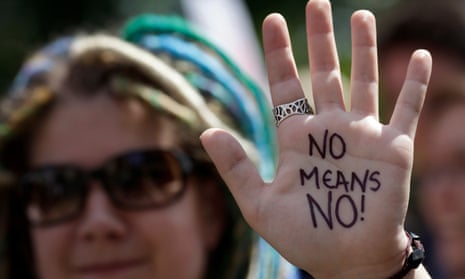Sexual harassment in universities is real, it is ugly, and it is well known about – certainly in my departments. Yes, plural. I have heard about it, seen it and experienced it myself, throughout my career.
It usually comes from nice, affable, older male academics who are all hot on equality and feminism until they’ve had a few drinks at the pub, or, worse, when we’re away for a conference. At conferences there are no wives to go home to, there is no one to check on them, and there are hotel rooms available.
Things can get pretty out of hand, but even I was surprised the morning I saw a young woman who had been left with bite marks on her face from the advances of a male lecturer, 20 years her senior. She said she blamed herself for not having pushed him back quickly enough.
Why do we not speak about this? Rather, why do we not speak out about it in public? We do in private. Do senior academics not realise that we talk to each other, and that they are earning themselves reputations as predators to be avoided? You don’t want to be the last one left in the pub with them and you never, ever agree to share a taxi. But avoiding them altogether is not an option: it is through socialising that career-boosting networks are built.
A precarious position
I am known as an early-career researcher, or an ECR – a euphemism to describe a person stuck in a series temporary contracts and fixed-term posts that can often stretch into their late thirties. If and when we ECRs emerge from these precarious contracts, once we are in a position to choose, many of us will be careful in selecting who we work with. I’d sooner get out of academia than work with some senior male staff I have crossed paths with.
And that is the problem. The inappropriate comments and the unreasonable requests (and worse) all stem from a system where many, many men are now safely established in permanent posts.
They know each other, especially within their fields and disciplines. They protect one another and they don’t want to let members of the group down by supporting an ECR or PhD student making a complaint against them.
Stories like the recent case from the University of Sussex – where a lecturer only recently lost his job after being convicted for abusing a young female student he was in a relationship with – do not give us confidence in the system. Earlier this year, Sara Amhed, a professor at Goldsmiths University, was moved to resign because she claimed sexual harassment was becoming “normalised and generalised” and “part of the culture of academia”.
But making a stand can amount to career suicide for ECRs. Getting a job is difficult enough: permanent positions are like golden unicorns at the end of the rainbow and no one can afford to be known as “the one who complained”.
Jobs are also tied to the number of publications a person has. As journals become more and more specialised, it is not difficult to work out whose writing you are peer-reviewing. The networks come into play again. Is it worth making a complaint against senior men who may end up deciding whether your work gets published or not, all the while covered by the pretence of anonymity?
Safety, sanity and self-esteem
So how widespread is the problem? I can only speak about the handful of universities I have worked in, but I can confidently say that the worst things I have seen and experienced happened when male senior academics were in charge all the way to the top of the hierarchy.
I know that harassment is not only male-to-female, but I have only ever had male principal investigators on my projects – four of them over 10 years – and have always been the junior female around tables full of men in senior roles.
My colleagues and I do what we can to maintain safety, sanity and self-esteem in an academic environment that is still dominated by old boys’ networks, and we hope that things will improve as more women become established and take on senior roles. I am not saying that a female-led system would be perfect, of course – I am sure there are plenty of women who would steal your data, but maybe without trying to grope you in the process.
Is this something you have experienced? We’d like to hear from staff and students who have concerns about sexual harassment at UK universities. Get in touch to share your story confidentially.
Join the higher education network for more comment, analysis and job opportunities, direct to your inbox. Follow us on Twitter @gdnhighered. And if you have an idea for a story, please read our guidelines and email your pitch to us at highereducationnetwork@theguardian.com










